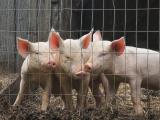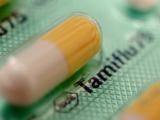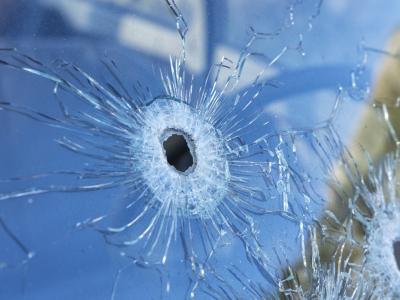Lancet study: Seasonal flu shot may protect against H1N1
Contrary to most other reports, a study of H1N1 flu cases in Mexico, published in The Lancet, suggests that seasonal flu vaccine may have had a protective effect. Researchers examined data on 69,479 patients who sought treatment for flu-like illness. H1N1 was confirmed in 11% of cases; 56% of those were in people between 10 and 39 years old. Risk of infection was 35% lower in those who had received seasonal flu vaccine (odds ratio, 0.65; 95% confidence interval, 0.55 to 0.77).
http://www.thelancet.com/journals/lancet/article/PIIS0140-6736(09)61638-X/fulltext
Lancet report summary
CDC study finds no protective effect of seasonal flu shot
A study by the Centers for Disease Control and Prevention (CDC) found no evidence that seasonal flu vaccine was protective against the H1N1 virus. The CDC compared the vaccination coverage among 356 H1N1 case-patients in eight states with the estimated population coverage in those states. Overall vaccine effectiveness was found to be minus-10% but varied widely by age-group. The results, combined with others, suggest that seasonal flu vaccine neither raises nor lowers the risk of H1N1 infection.
http://www.cdc.gov/mmwr/preview/mmwrhtml/mm5844a5.htm?s_cid=mm5844a5_e
Nov 13 MMWR article
Researchers detail lung damage in fatal cases
Autopsies of 15 Mexican patients who died of suspected novel H1N1 infections found the virus in 5 of them, of which 4 were young adults, doctors reported in a New England Journal of Medicine letter. Lung tissue was heavier than normal and solid. Four had upper-airway hallmarks seen in seasonal flu cases, but all five had pulmonary damage and interstitial lesions typically seen with H5N1 infections. Two patients showed evidence of other organ involvement seen in lethal H5N1 cases.
http://content.nejm.org/cgi/content/full/361/20/2001
Nov 12 N Engl J Med letter
Philadelphia hospital reports unusual rhinovirus outbreak
Tests at Children's Hospital in Philadelphia found that rhinovirus infections, unusually severe with lower-respiratory symptoms, have been responsible for nearly half of flulike illnesses diagnosed at the institution this fall, the Philadelphia Inquirer reported today. The hospital routinely tests for both and saw rhinovirus activity rise before and after the flu season started. Researchers from the CDC are investigating the findings.
http://www.philly.com/inquirer/health_science/daily/20091112_Tests_show_fall_outbreak_is_rhinovirus__not_swine_flu.html
Nov 12 Philadelphia Inquirer story
Colleges see small rise in flu-like illnesses
For the week ending Nov 6, US colleges reported 29 new cases of flulike illness per 10,000 students, a 1% increase from the previous week, the American College Health Association (ACHA) reported today. There were 15 hospitalizations among the 8,951 new flulike illnesses. The ACHA said no deaths have been reported so far and that though the illness pattern seems to be mild so far, it hopes H1N1 vaccine becomes more widely available to blunt the pandemic's impact on students.
http://www.acha.org/ILI_LatestWeek.cfm/date=111209
ACHA report for week ending Nov 6
FDA approves use of CSL's H1N1 vaccine in children
The US Food and Drug Administration (FDA) has approved the use of CSL Biotherapies' 2009 H1N1 flu vaccine in children aged 6 months through 17 years, the company announced yesterday. The injectable vaccine was approved for adults in September. The formulation for children is available in thimerosal-free, single-dose syringes, the company said.
http://www.fda.gov/BiologicsBloodVaccines/Vaccines/ApprovedProducts/ucm181975.htm
FDA information about CSL vaccine approval
Officials say China's aggressive flu-control measures helped
Chinese and foreign health officials say the aggressive—and widely protested—quarantine measures China has used to fight the H1N1 virus may have helped slow the disease, according to the New York Times. Although cases have mounted recently, China has not yet had a major epidemic. The director of the World Health Organization's Beijing office said China's control measures have worked "very well." The US Embassy said 2,046 Americans had been quarantined in China through October.
http://www.nytimes.com/2009/11/12/world/asia/12chinaflu.html?_r=1&scp=2&sq=Edward%20Wong&st=cse
Nov 11 New York Times report
Vaccine shortages reported in Canada, UK
H1N1 vaccine clinics in Ottawa, the Canadian capital, are scheduled to close tomorrow because of a vaccine shortage, CBC News reported yesterday. The city health department said almost 190,000 people, or 22% of the population, would be vaccinated by tonight. Meanwhile, some large medical practices in the United Kingdom were running out of vaccine, as they received the same initial 500-dose allotment as small practices, according to the Pulse, a magazine for British general practitioners.
http://www.cbc.ca/canada/ottawa/story/2009/11/11/swine-flu.html
Nov 11 CBC News report


















